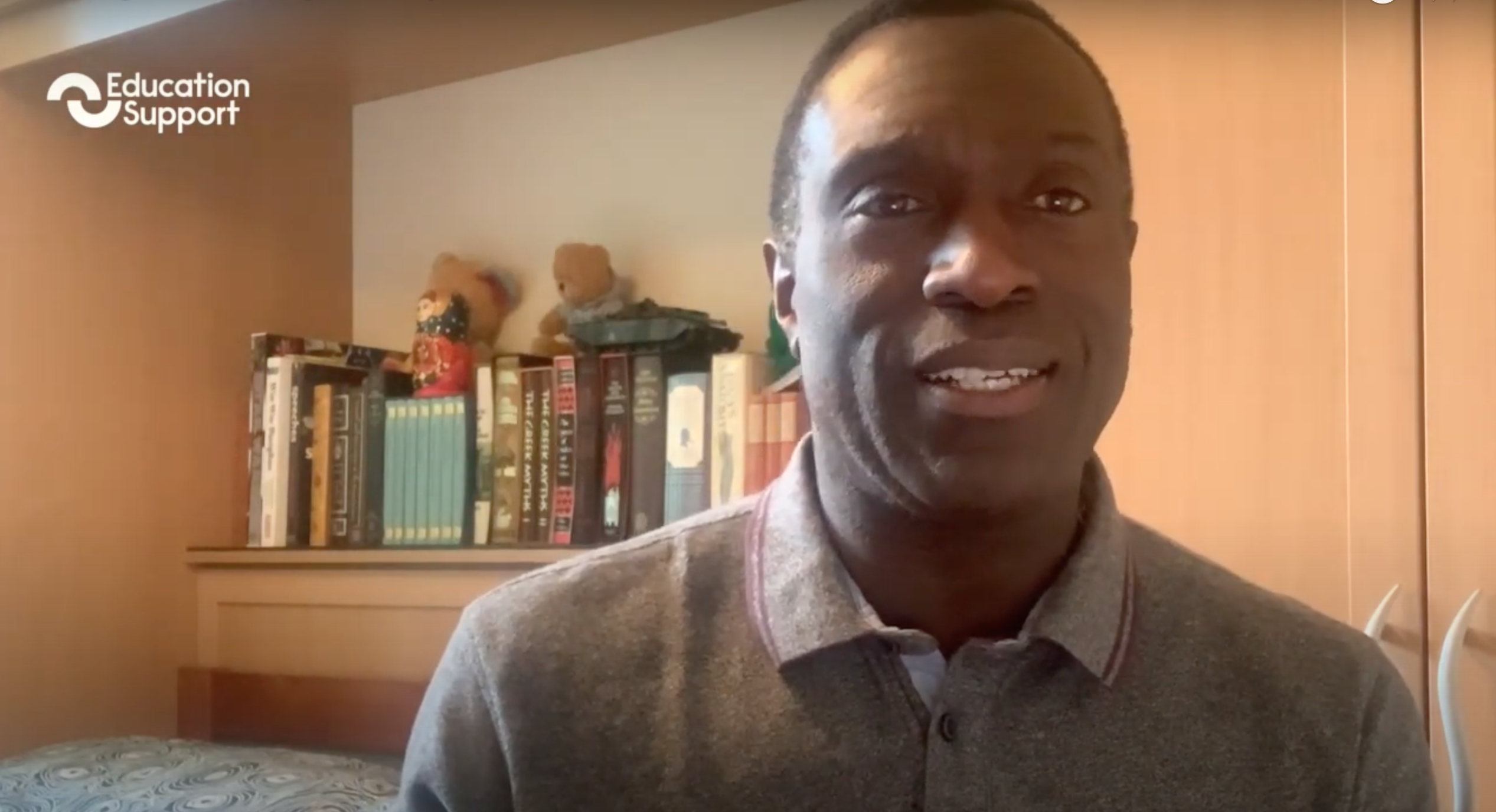Seven strategies for managing anxiety
Psychotherapist, Ben Amponsah outlines seven key strategies to help teachers and education staff to manage anxiety during the coronavirus crisis.
Videos / 18 mins watch

Watch this short video for Ben’s seven strategies to help teachers and education staff manage anxiety,
Here are Ben’s top tips
1.
Manage your worries
Writing down your worries can help them become more manageable and less overwhelming
Analyse the evidence for and against the worry
Do some problem solving to help decide where you are able to take action
Allocate, and boundary, specific worry time so that you don’t worry throughout the day
Get enough sleep
2.
Manage your information
The amount of news and information available can be overwhelming:
Choose your news sources carefully and ensure that they are trustworthy and reliable
Allocate a time for catching up with news and information, rather than reviewing a constant drip feed
Limit the amount of time spent on news
3.
Communication with friends and family
Limit the conversations or contact with people that make you more anxious
Let close friends or family know if they do things that make you feel anxious
Limit your consumption of social media, unfollow or mute people or groups that make you more anxious
Talk things through with trusted friends and loved ones, tell them how you are feeling regularly
4.
Shift your perspective
Everything feels challenging at the moment and it is easy to start to catastrophise (think the worst case possible)
Notice negative thinking patterns – can they be challenged?
Identify positive things that have happened today to balance the negative thinking e.g. keep a gratitude diary
5.
Establish a routine to beat isolation and loneliness
The education profession is highly social and so in lockdown you may be particularly affected by the loss of connection with colleagues and students:
Get a routine to avoid bad habits and boredom which can increase anxiety and affect your mental health
Get up, get dressed and eat regularly
Schedule your day
Keep contact with friends and relatives regularly
Keep active and exercise regularly
Do something you never had time for before e.g. writing, gardening, photography etc
6.
Manage relationships
Relationships during lockdown will be challenging so acknowledge this
Plan family meetings
Anticipate conflict and agree how to manage it
Have a routine and structure for kids
Be honest with kids about what is going on and how you are feeling
Schedule screen time
Occupy kids and get their input on what activities they want to do
7.
Accept Uncertainty
Reducing the need for certainty will reduce your worries. It is an uncertain world we live in all the time not just during this crisis.
It is ok to feel sad at the loss of your normal life and social interactions
It is ok to feel angry that you cannot see friends and family
Realising that your feelings are normal will help you accept them
Strategies to manage anxiety poster
Don’t wait for a crisis to call.
We’ll offer you immediate, emotional support.
08000 562 561

Sign up to our newsletter for the latest mental heath and wellbeing resources, news and events straight to your inbox.




















